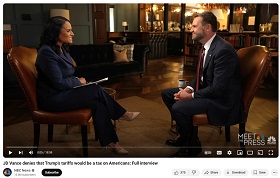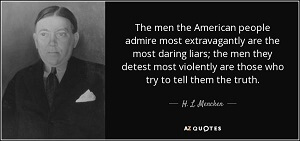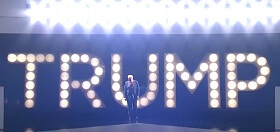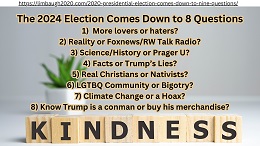Let the annotation begin…
Welker: She is quoting Kamala Harris at DNC: “Quote “He intends to enact what is in effect a National Sales Tax, call it a Trump Tax, that would raise prices on Middle Class families by almost $4,000 a year. Estimates vary. But how do you respond to that charge that Trump tariffs would hurt the Middle Class?””
Vance: “Yes, if you step back a little bit Kristen, there is this whole thing that Kamala Harris did at the convention where she made a bunch of claims about what would happen and not enough reflection on what already happened because Donald Trump was already president. He used tariffs to bring manufacturing jobs back to our country and I think he will do it again and he did it while keeping prices extremely low because if you go back to the Trump presidency we had 12,000 factories that were built during his presidency, inflation never really ticked above 2 percent his entire administration, in fact it was around 1/2 percent most of the time he was president so when Kamala Harris says if we do the thing Trump already did its going to be way worse than it was last time I just don’t think it makes a lot of sense.”
Since Kristen Welker took over Meet The Press it is a shell of what it used to be under Tim Russert and his predecessors so I am pretty sure she will not attempt to fact-check that information but I will. Inflation Rate under Trump?
Historical Inflation Rates: 1914-2024
I took the information and made an Excel Spreadsheet -Vance LIED! “inflation never really ticked above 2 percent his entire administration, in fact it was around 1/2 percent most of the time he was president ” and I am pretty sure Welker will not call him out on the lie. Her producers are as bad as she is.

Prices and Tariffs under Trump?
Trump’s washing machine tariffs are costing Americans almost $100 more per appliance
“American manufacturers have also jacked up the cost of their appliances, in order to match the higher price of their competitors.”
12,000 factories?
Claim: “After losing 60,000 factories under the previous two administrations, America has now gained 12,000 new factories”.
“Reality Check: There were 54,000 fewer “private manufacturing establishments” (factories) at the end of 2016 compared with the start of 2001, according to the US Bureau of Labor Statistics.
In terms of the gains under Mr Trump’s presidency, the most recent Bureau of Labor figures show that in the second quarter of 2019, there were roughly 12,000 more factories than when President Trump took office in 2017.
But many of these are small businesses, with fewer than five employees.
The number of factories overall started to increase in 2013, during the Obama administration.”
Vance won’t tell people how manufacturing jobs are up under Biden.

Vance will not tell folks how the Infrastructure Bill and CHIPS Act has created a record rate of new factory construction.
Does Welker call out his lies?
Welker: “Well, let’s talk about Trump’s record during his first term, he did impose rounds of tariffs and it cost Americans nearly $80 billion dollars in new taxes. Do you acknowledge that imposing more tariffs will ultimately cost consumers?”
WOW! She asked a great question! Importers pay the tariffs. Consumers pay the tariff via increase prices. The exporting country is not writing the US a check!
Tariff Tracker: Tracking the Economic Impact of the Trump-Biden Tariffs
“The Trump administration imposed nearly $80 billion worth of new taxes on Americans by levying tariffs on thousands of products valued at approximately $380 billion in 2018 and 2019, amounting to one of the largest tax increases in decades.”
Does Vance acknowledge consumer pay the tariffs or does he echo Trump’s lie that other countries pay the tariffs?
Vance: “What it really does is it penalizes importers from bring goods outside the country into the country. I think that is just a necessary thing. We know that China and a number of other countries are using effectively slave labor to undercut the wages of American workers. Donald Trump thinks that has to stop. Again, what Kamala Harris is saying Kristen is if you do this, your somehow going to cause skyrocketing inflation, in reality, Donald Trump already did it and he brought a lot of jobs back and it didn’t cause inflation.”
Kamala Harris did not say “Skyrocketing Inflation”. She did say it will be a $4,000 a year TAX on Middle Class America. It was almost an $80 BILLION tax in Trump’s first term. New Jobs? Nope!
Did Trump’s tariffs benefit American workers and national security?
“In general, then, Trump’s tariffs have helped some workers and hurt others. Nothing is particularly surprising about this; trade policy almost always has important distributive effects, and any change in trade policy is a choice to benefit some groups at the expense of others. Yet, overall, when economists have attempted to add up the net effect of Trump’s tariffs on jobs, any gains in importing-competing sectors appear to have been more than offset by losses in industries that use imported inputs and face retaliation on their foreign exports. And even those jobs that have been created have come at great cost: studies suggest American consumers paid about $817,000 in higher prices attributable to the tariffs for every job created in the washing machine industry and $900,000 in the steel industry. While policy interventions to support manufacturing jobs may be warranted, there are cheaper ways to do so.”
Does Welker rebut his reply? Notice he does not refute the $80 billion in new taxes figure she gave him. I am shocked! She called him out on that!
Welker: “But it caused consumers to pay more. They paid more in taxes. $80 billion dollars worth. Do you acknowledge consumers ultimately will pay more if there are more tariffs?”
Again, does Vance tell the truth or parrot Trump’s tariff lie?
Vance: “So economists…”
Welker: “Will you just acknowledge that?”
Vance: “No, I don’t Kristen because economists really disagree about effects of tariffs because there can be a dynamic effect right, so what some economist will say is what you just said, that it will actually raise costs for consumers, but what other people will say, and I think the record will support this other view, it causes this dynamic effect where more jobs come into the country. Anything that you lose on the tariff perspective of the consumer you gain in higher wages so you are ultimately much better off. You have more take home pay, you have better jobs, and also have more reliance because one of the thing we learned in COVID, by the way I don’t blame Democrats for this, but what one the things we learned during COVID Kristen is that if our supply chains are really brittle, if we depend on the Chinese to make so much of our stuff, then prices can skyrocket at a time of crisis. The economists that say tariffs are bad don’t take that into account. We all learned it the hard way.”
I hear Kristen about to reply but I stopped tape so I can. Economist have known since Smoot-Hawley that Tariffs are BAD!
The Great Depression Lesson About ‘Trade Wars’
“President Donald Trump has tweeted that “trade wars are good and easy to win.” But many economists have disagreed that raising tariffs sharply can improve the economy. In particular, experts have pointed to the failure of the Smoot-Hawley Tariff Act, passed in June 1930, to protect U.S. industries from tariff increases.”
““Economists around the country argued to the Republican Congress that this would only hurt the world economy, and the United States economy,” Barfield says. (Before the political parties realigned in the mid-20th century, the Democrats were the “free trade” party.)
And they were right. Although it did not cause the onset of the Great Depression, it did help extend it. After President Hoover signed the bill into law, stocks dropped to 140.
Other countries responded to the United States tariffs by putting up their restrictions on international trade, which just made it harder for the United States to pull itself out of its depression. Imports became largely unaffordable and people who had lost their jobs could only afford to buy domestic products. Global trade tanked 65 percent.”
Ask the US Chamber of Commerce – Vance’s “other people” are Federalist and other Pro-Trump people, not economists.
The High Price of Tariffs
“The tariff war will hurt consumers, reverse tax cuts, and cost jobs.”
What does Welker come back with?
Welker: “And it is economists across the board, really, the Wall Street Journal says economic data shows that Donald Trump’s Trade War with China did not achieve its objectives of reversing the declines in U.S. manufacturing or reshoring factory jobs. I hear what you’re saying, it’s a complicate picture, but just on that bottom line point you can’t argue that Americans won’t wind up paying a penny more, can you?”
Wow! Where has this Welker been? Well done Kristen! Again, does Vance tell the truth or parrot Trump’s Tariff Lie?
Vance: “Well, I think what we can guarantee is that if you don’t bring more manufacturing jobs, you don’t make our supply chains more stable, you’re going to cause higher prices over the long term. I think what is absolutely true.”
Welker asks AGAIN! Fourth time!
Welker: “But you acknowledge they could wind up paying more?”
Vance: “What I acknowledge Kristen is that unless we bring more manufacturing jobs back to this country, we’re going to end up paying more in the long term. Remember, the whole problem, remember this was a bipartisan thing, my own party was just as wrong about it as Democrats and Donald Trump was right about it, what they said is the shift all our manufacturing to East Asia, into Mexico, Americans would pay lower prices. Well, here we are now and Americans are paying higher prices and just one more thing on this Kristen. It is really important to go over what Kamala Harris actually said in her convention speech. She says she wants to stand up to China on behalf of American workers. If you’re not willing to impose tariffs on companies that are manufacturing in China, using slave labor in China, you’re not standing up to the Chinese and Americans are going to suffer.”
So Vance refuses to acknowledge tariffs costs consumers money. There are other ways to stand up to China outside of Tariffs. When you impose a tariff on a country, they retaliate with tariffs of their own. Ask our Farmers!
What does Welker come back with?
Welker: “I know I am on pricing and prices right now, inflation obviously… Let’s move on….
The replies are awesome:

She brings up Robert F Kennedy Jr and other topics….




